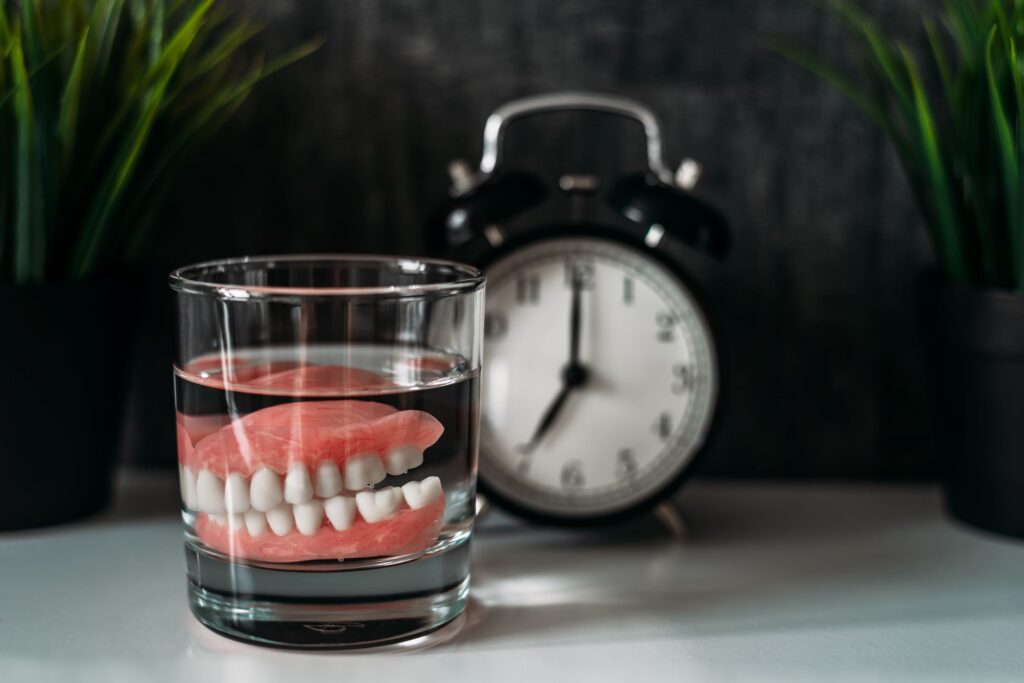
If you’ve lost some or all of your natural teeth and are looking for a reliable replacement, you might benefit from dentures. These versatile prosthetics can be adapted to meet your unique needs to restore your smile’s functionality. Plus, they can be customized to look just like the ones that went missing.
It can take about a month for new patients to become acclimated to wearing their dentures all day. However, once they do, it’s not uncommon to wonder whether they sleep with them in their mouths to avoid the hassle of removing them nightly. While this might be okay to do occasionally, it’s generally not recommended. Continue reading to learn three reasons why!
Issue #1: Denture Stomatitis
Did you know that your mouth tends to dry out at night? Saliva is your body’s natural defense against harmful bacteria and acid damage in your mouth. It rinses away unwanted particles and has a nearly neutral pH balance to counter damaging ingredients. Without enough of it, unhealthy germs can multiply and cause problems like denture stomatitis.
Also known as oral thrush, this condition occurs when a specific yeast bacterium proliferates, causing redness, swelling, and tenderness in the gums. This is often accompanied by an uncomfortable burning sensation that can be so irritating that keeping your prosthetics in place is hard. Unfortunately, sleeping in your dentures increases the risk of this chronic inflammation.
Issue #2: Accelerated Bone Loss
Many patients are shocked to learn that their jawbone begins deteriorating once adult teeth go missing. Without a root in place to stimulate new bone growth each time you bite down, your jaw becomes weaker and starts to thin. In time, it might be too frail or thin to support any remaining teeth, let alone your restoration.
Your artificial teeth rely on a firm suction against your gums to remain in place. If they’re pressed against your bony ridges 24/7, they can speed up this degenerative process, leading to ill-fitting dentures you must pay to repair or replace.
Issue #3: Inadequate Cleaning
Even if you have no teeth remaining, you still need to maintain a consistent at-home dental hygiene routine to prevent gum disease. Although it is physically possible to brush and floss your dentures while they’re still inserted, you can’t reach all their surfaces this way.
To keep your prosthetics in excellent condition, you should remove them twice daily to thoroughly wash them. You can use a soft-bristled toothbrush and clear dish soap that won’t be abrasive on the materials. Be sure to scrub all sides gently to remove leftover bits of food and plaque residue.
Also, soaking your dentures at night in a glass of water or a special solution can eradicate up to 99% of germs while giving your gum tissue a much-needed reprieve!
About the Author
Dr. Karen Neil has more than 30 years of experience helping people enhance their lives by improving their oral health. She earned her dental doctorate from the University of Texas Health Center in San Antonio and has continued her education with various Spear workshops since 2001. Now, she provides a full array of services to meet all of your and your family’s dental needs conveniently under one roof. If you are considering dentures, you can request a consultation on the website or call (817) 738-3368.
